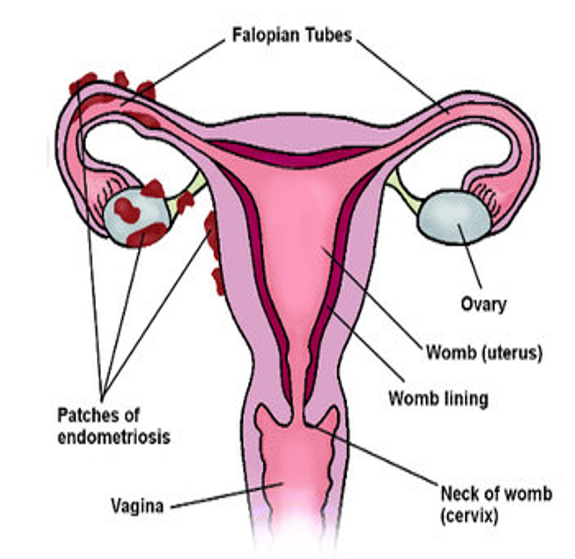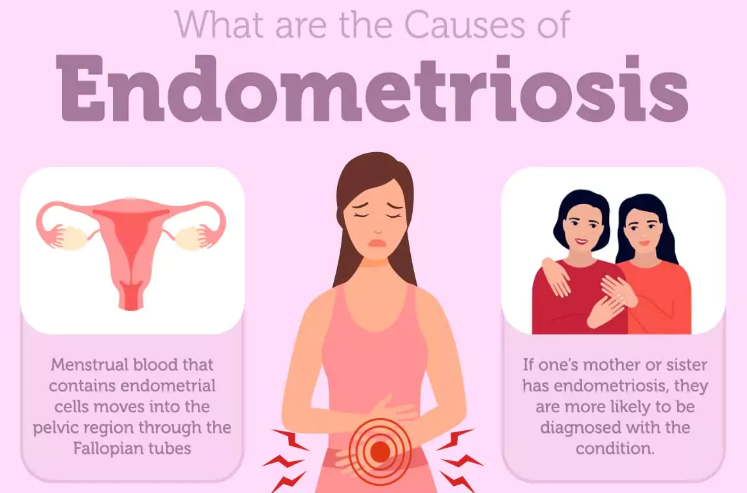Endometriosis

Symptoms of endometriosis
The symptoms of endometriosis can vary. Some women are badly affected, while others might not have any noticeable symptoms. Some common symptoms of endometriosis are:- Pain in the lower tummy or back which is usually worse during a women's period.
- Painful periods that can stop a woman from her normal activities.
- Pain during or after sex.
- Pain when urinating or defecating during a period.
- Feeling sick, constipation, diarrhoea, or blood in urine or faeces or during the period.
- Difficulty getting pregnant.
Treatments for endometriosis
There's currently no cure for endometriosis, but there are treatments that can help ease the symptoms. Treatments include:- Painkillers such as ibuprofen and paracetamol.
- Hormone medicines and contraceptives for example the combined pill, contraceptive patches, implants and hormone releasing coils.
- Surgery to cut away patches of endometriosis tissue.
- Surgery to remove part or all the organs affected by endometriosis, such as surgery to remove part of the colon, appendix, or womb.
Further problems caused by endometriosis
One of the main complications of endometriosis is difficulty getting pregnant or not being able to get pregnant at all (infertility). Surgery to remove endometriosis tissue can help improve chances of getting pregnant, although there's no guarantee that a woman will be able to get pregnant after treatment. Surgery for endometriosis can also sometimes cause further problems, such as infections, bleeding or damage to affected organs. The NHS website Endometriosis Complications has lots of information on the complications that can be caused by Endometriosis.Living with endometriosis
Endometriosis can be a difficult condition to deal with, both physically and emotionally. As well as support from health professionals patients may find it helpful to contact a support group, such as Endometriosis UK. for information and advice. In addition to detailed information about endometriosis, Endometriosis UK has a list of support groups a helpline on on Tel: 0808 808 2227 and even a webchat function.Causes of endometriosis
The exact cause of endometriosis is not known. Several theories have been suggested, including:- Genetics – the condition tends to run in families and affects people of certain ethnic groups more than others.
- A problem with the immune system, the body's natural defence against illness and infection.
- Endometrium cells spreading through the body in the bloodstream or lymphatic system, a series of tubes and glands that form part of the immune system.

